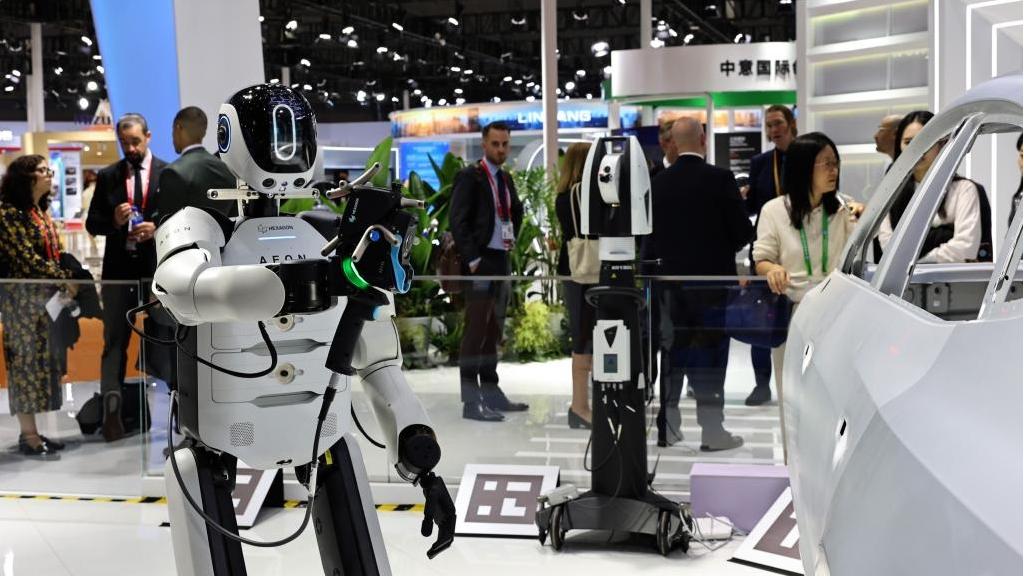China’s first robot debate showcases surprising language and logic skills
Chinese robots are known for running marathons and working in factories, but on Sunday they took on a new challenge: debating. The finals of the first Chinese robot debate competition were held in Beijing, where robots faced off in a true battle of wits. Unlike earlier rounds that featured human-robot debates, the finals were all about machine-versus-machine, with robots analyzing each other's statements and launching sharp counterattacks, much like human debaters.
After preliminary and semifinal rounds that moved from human-robot cooperation to direct opposition, the finals featured four robot teams debating topics such as "Is there a relationship between genius and diligence?" and "Can human time measure the operation of the universe?" According to the China News Service, the championship debate focused on "Will robots rule over humans?" The humanoid robot "Sirui" from Hubei University sparred with the semi-humanoid robot from the Noetix Robotics-Xiaonuo team.
Sirui argued that robots will gradually replace humans, first in simple labor and eventually even in tasks that require intelligence and experience. "Robots will one day dominate humans," it claimed. The Xiaonuo team's robot, however, quickly found a logical flaw, countering with "Just as cars replaced carriages and calculators replaced abacuses, no one has ever said these tools ruled over humans."
The two robots exchanged attacks and defenses, with judges scoring them on logic, language expression, multi-modal interaction, skill demonstration, and adaptability. In the end, the Xiaonuo team took the championship. "We are thrilled. The robot's language and logical abilities exceeded our expectations," said Chen Peng, the team's project manager. The team had brought their self-developed bionic robot and spent months training it on debate topics, dialogue management, and reasoning skills. The finals provided a real-world test for their large language models, according to the Beijing News.
This inaugural competition attracted 14 teams from universities and companies across China, including Beijing, Shanghai, Guangzhou, and Tianjin. Judge Wu Junhua told the China News Service that robot debating puts core AI technologies to the test - such as speech recognition, speech synthesis, natural language understanding, and generation - but also showcases multi-modal perception, knowledge reasoning, and human-computer interaction.
Today, robots have already found applications in fields such as education and home services. So why are competitions like the robot debate still important?
"It's clearly unrealistic to build an all-purpose home assistant robot right from the start," Zhao Mingguo, head of Tsinghua University's Hephaestus robot team and director of the Tsinghua University Robot Control Laboratory, explained to the Global Times. "But that kind of robot involves many key components and technologies, and you can often find the answers to them in these competitions."
For example, a robot capable of real-time argumentation and response in a debate must possess strong semantic understanding and logical reasoning abilities - core skills for natural human-computer interaction. At the same time, it requires high-speed information processing and emotion recognition modules to adjust its strategy based on an opponent's speech. Such technologies are equally vital for educational and companion robots.
"Competitions push robot makers to pursue the limits of each individual technology," Zhao said. "Once these technologies are refined, they provide experience and valuable data for developing more complex robots."
He noted that just as it took years for the steam engine to evolve into the steam locomotive, the development of robotic technologies and the emergence of revolutionary products will follow a similar path.
In Zhao's view, these robot competitions not only reveal weaknesses and drive technological innovation, but also allow the public to intuitively perceive the thinking ability and social potential of artificial intelligence, helping to build a complete robotics ecosystem.
The algorithms and interaction technologies being tested and optimized on the debate stage today may soon shape the next generation of intelligent humanoid robots - enabling them to truly step out of the lab and into the linguistic and cognitive world of human society.
Previously, Beijing has hosted the world's first humanoid robot half-marathon and the first humanoid robot sports games. Zhao's team won the 5v5 soccer event at this year's World Humanoid Robot Games in August.
Photos
Related Stories
- Spring manufacturer in E China finds its bounce on new track of growth
- Humanoid 'Kuafu' debuts as special torchbearer at 15th National Games relay in Shenzhen
- A glimpse of humanoid robots in Shenzhen, China's Guangdong
- Robot crosses Wuhan street like a boss
- China’s service robots take lead with world’s first hotel using humanoid and specialized robots
Copyright © 2025 People's Daily Online. All Rights Reserved.









